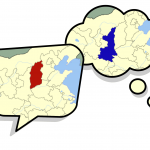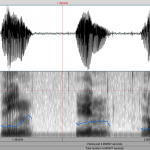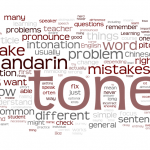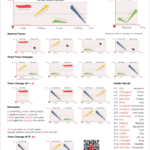You searched for third tone | Page 2 of 11 | Hacking Chinese Page 2
-
Tone errors in Mandarin that actually can cause misunderstandings
Accidentally saying “chest hair” in Chinese when you mean “panda” is amusing, but it rarely causes confusion. Let’s look at some tone mistakes that actually do cause confusion!
Read → -
Obligatory and optional tone change rules in Mandarin
As if learning basic tones wasn’t enough, tones in Mandarin also influence each other and change depending on context. Some of these tone change rules you have to learn, but others are better left alone and will be absorbed automatically over time.
Read → -
7 kinds of tone problems and what to do about them
Tones are tricky to learn and students often encounter many different kinds of problems. Since the solution to them are very different, it’s important to understand what the problem actually is before you try to do something about it!
Read → -
Sensible character learning challenge 2014: Milestone #3
The second milestone in the 2014 sensible character learning challenge has now been reached! This is also the last opportunity to join the challenge if you haven’t already. If you have, it’s time to report you progress in May. This article also contains information about prizes (character posters, free extensions and Chinese learning products) for the third milestone, as well as my own reflections of my character learning.
Read → -
Focusing on tone pairs to improve your Mandarin pronunciation
When learning to pronounce tones in Chinese, it makes sense to focus on words rather than single syllables. Most words in Mandarin are disyllabic and since practising these will also include tone changes (sandhi), focusing on tone pairs is recommended. This article gives you all HSK and TOCFL words, sorted by tone! First all [first tone] + [first tone], then all [first tone] + [second tone] and so on. This is great for students who need words to practise difficult combinations, but it’s also useful for teachers.
Read → -
Extending mnemonics: Tones and pronunciation
Using mnemonics to memorise concrete objects is fairly easy, but how can we use mnemonics to remember abstract things such as tones and pronunciation? In this article, I expand my previous discussions of mnemonics and show how they can be quite powerful if you’re prepared to invest some extra time.
Read → -
The tones in Mandarin are more important than you think
Tones are more important than most people think. Just because native speakers reduce tones and speak quickly, it doesn’t mean that you can do the same and get away with it. Don’t be fooled by people who say that tones in Chinese aren’t as important as all that, because they’re wrong.
Read → -
Don’t learn Mandarin pronunciation by reading, listen and mimic instead
Don’t try to learn pronunciation by reading. Instead, the best way to improve is to listen to and mimic native speakers. Focusing too much on how sounds are written down can actually make it harder to hear them!
Read → -
YouGlish: A free service to hear and see Chinese words in context
Context matters. How words are pronounced and used depends on context, but traditional learning materials lack the diversity to prepare you for real-world Chinese. Fortunately, YouGlish is a great tool for studying language in context.
Read → -
Three things I wish I had known as a beginner student of Chinese: The time machine, part 1
I started learning Chinese more than 15 years ago. Here are three things I wish I had known as a beginner!
Read →








